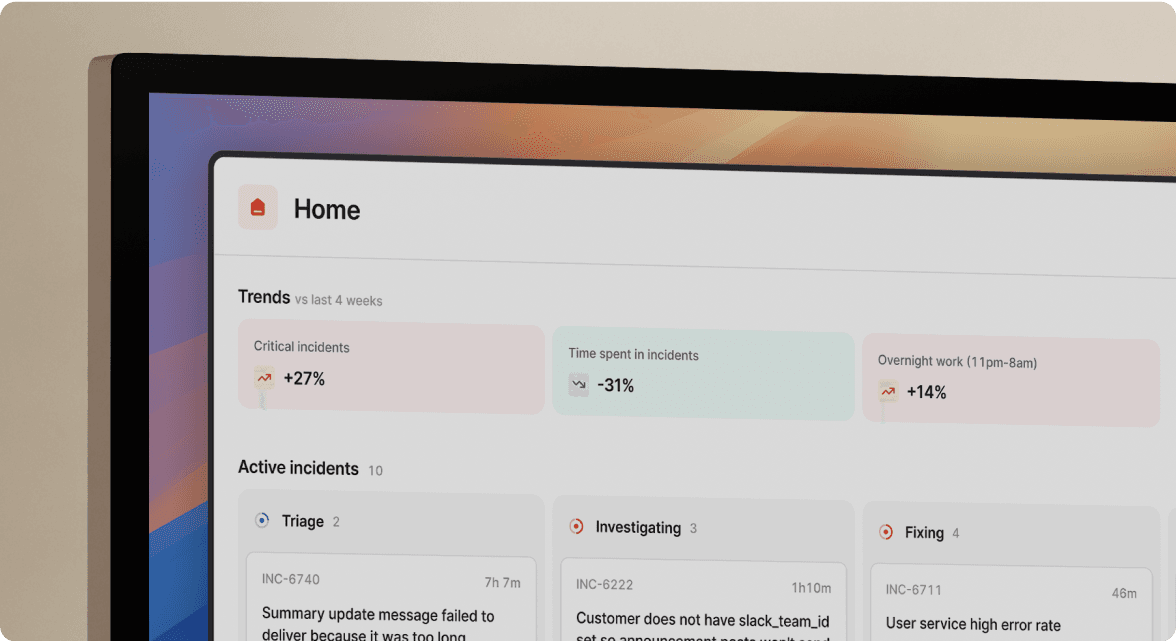Introducing The Debrief: A new podcast series from incident.io

We're ecstatic to announce our new podcast, The Debrief. In this series, you'll hear insightful conversations with engineers, product managers, co-founders and more, all about the debatable topic of incident management.
We'll discuss tactics and best practices, debrief on real-life response stories (good and bad), and even shed some light into how we run things here at incident.io: from product launches to Game Days and more.
In our inaugural episode, we sit down with Alicia Collymore, Engineering Manager at incident.io, on sensible advice she'd pass along to first time EMs. We discuss:
- Advice for figuring out what type of manager you want to be
- How to navigate the challenges of a report who may not be performing well
- Why it's important to delegate responsibilities you once owned
- Why building genuine relationships with reports is crucial
- ...and more
You can catch The Debrief, every Monday morning on Spotify, Google Podcasts, Amazon Music and Apple Podcasts.
You may also be interested in

2025 founders year in review: insights, highlights, and future plans
Three founders, one kitchen table, and a very honest end of year conversation. In this episode we look back on 2025, from moving continents and growing the company at pace, to ski trips that probably should not have happened, live demos that absolutely could have gone wrong, and the small moments that made the year memorable.

How we're shipping faster with Claude Code and Git Worktrees
In this episode, CTO Pete and Product Engineer Rory B. discuss how we’re using Claude Code and Git Worktrees to allow engineers to build multiple features in parallel.

Shipping faster with AI with Leo P.
In this episode, we chat with Product Engineer Leo about how we’re using AI tools like Claude Code to ship more product, more quickly.
So good, you’ll break things on purpose
Ready for modern incident management? Book a call with one of our experts today.

We’d love to talk to you about
- All-in-one incident management
- Our unmatched speed of deployment
- Why we’re loved by users and easily adopted
- How we work for the whole organization



